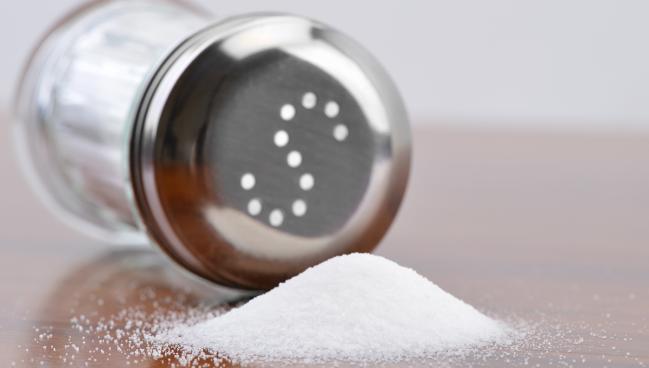Sodium Restriction No Help, No Harm in HF, Meta-analysis Confirms
The study effectively doubles the number of patients studied in SODIUM-HF but largely reinforces the RCT findings.

Sodium restriction in patients with heart failure (HF) does not reduce the risk of all-cause death or hospitalizations, a large meta-analysis confirms, cementing the findings of the SODIUM-HF randomized trial reported earlier this year.
“SODIUM-HF was just one trial. We added 16 more and doubled the sample size and saw the same results,” Justin Ezekowitz, MBBCh (University of Alberta, Edmonton, Canada), senior author on the meta-analysis and principal investigator for SODIUM-HF, told TCTMD. “What we learned is that across all the different trials that have been done that have very different inclusions and interventions, there's really not broad support for sodium reduction as an intervention for patients with HF.”
The meta-analysis was published last week in Circulation: Heart Failure.
As Ezekowitz and colleagues, led by Eloisa Colin-Ramirez, PhD (Universidad Anáhuac México, Huixquilucan), point out, cutting back on sodium is a “common self-care recommendation for patients with heart failure,” stemming from the ways the failing heart compensates to maintain cardiac output by increasing sodium and retaining water.
SODIUM-HF, a multinational, 800-patient randomized trial, demonstrated that restricting sodium intake over 1 year did not reduce all-cause death, cardiovascular hospitalizations, or emergency room (ER) visits. Event rates, however, were numerically lower in patients randomized to a low-sodium diet, and both quality-of-life (QoL) scores and NYHA class showed greater improvements in the intervention arm.
This new meta-analysis combining SODIUM-HF with other trials in this space was intended to add more clarity to those findings and potentially even nudge the numerical difference in the primary endpoint towards statistical significance, Ezekowitz confirmed.
In the end, however, the meta-analysis upheld the trial findings. The rate of all-cause death (in the trials reporting this endpoint) was 4.2% in the restricted-sodium group and 4.7% in the control group, a nonsignificant difference. All-cause hospitalizations, likewise, were not significantly reduced and confidence intervals were wide (OR 0.86; 95% CI 0.48-1.57). Combined, all-cause death and hospitalizations occurred in 22.9% of the sodium-restricted patients and in 26.9% of controls (OR 0.81; 95% CI 0.60-1.09).
In a departure from SODIUM-HF, change in NYHA class with sodium restriction, reported in eight trials, was no better for the restricted patients than the controls. Impact on QoL was difficult to ascertain, given the different tools used to measure this endpoint across the different trials. To TCTMD, Ezekowitz said that he believes SODIUM-HF is likely the best resource to use for QoL discussions, given the use of widely accepted Kansas City Cardiomyopathy Questionnaire scores in the study.
Also notable, investigators saw a trend towards more all-cause mortality with stricter sodium restriction (< 2,000 mg/day) as compared with less strict levels (2,000-3,000 mg/day). “Although the difference was not significant, this observation generates a hypothesis that may require testing in future studies but suggests caution in implementing strict sodium-restriction practices,” the authors say.
Discussing this finding with TCTMD, Ezekowitz noted that the trials included in the analysis that had “extremely restricted” sodium cutoffs also used very high doses of diuretics, which is not reflective of clinical practice today, making it difficult to read too much into this signal.
Impact for Patients
Ultimately, Ezekowitz believes the meta-analysis provides a solid answer that can be used in discussions with patients and should be put in the context of broader dietary recommendations. “I usually say things such as restricting sodium in your diet is generally healthy overall and there is certainly no safety issue when you do that. It likely doesn't reduce the risk for needing to be hospitalized or visiting the ER, or dying from heart failure, but it may improve quality of life and it’s part of an overall healthier dietary pattern, probably something that could contribute to your overall health.”
In that sense, he added, it’s actually good news for patients, some of whom reached out to him after SODIUM-HF to tell him they were relieved. “If they prefer to do sodium restriction, it supports that that’s something they can do safely, and if they prefer not to be as restrictive of that, it takes that burden off them, [lessening] their overall guilt around what they're eating for their own self-care,” Ezekowitz said.
Current heart failure guidelines have already “backed away” from making stringent recommendations for restricting sodium, he noted. This meta-analysis and SODIUM-HF before that reinforce that stance.
“I expect that most guideline committees will now step away from recommending any sodium restriction, or if they are going to be recommending any level of sodium restriction, they’re probably going to describe it very much in context with the way we describe it in the SODIUM-HF file, which is that there may be some quality-of-life benefits and could be considered in that context, rather than saying, ‘Reduce it for an expected outcome,’ which is our typical guideline approach,” he said.
“But I think they’ll have their work cut out, because they have to offer a very balanced approach, and this is the data we have even if it’s not the data you want.”
Shelley Wood was the Editor-in-Chief of TCTMD and the Editorial Director at the Cardiovascular Research Foundation (CRF) from October 2015…
Read Full BioSources
Colin-Ramirez E, Sepehrvand N, Rathwell S, et al. Sodium restriction in patients with heart failure: a systematic review and meta-analysis of randomized clinical trials. Circ Heart Fail. 2022;Epub ahead of print.
Disclosures
- Ezekowitz reports no relevant conflicts of interest.



Comments